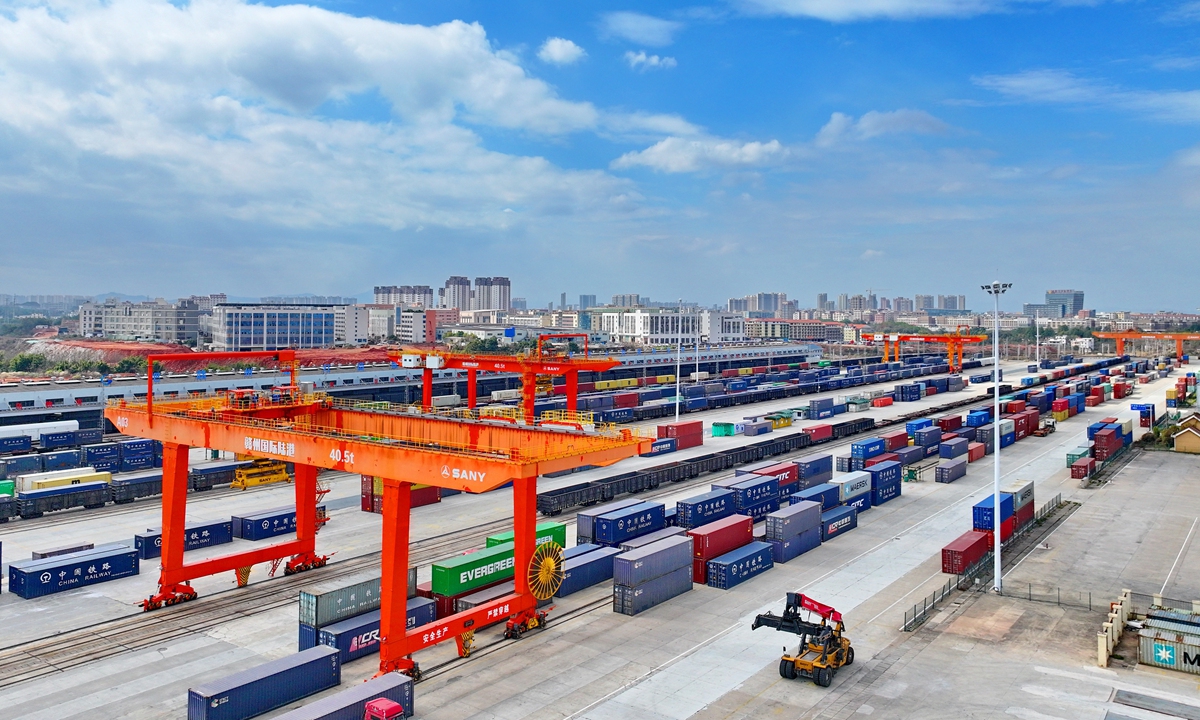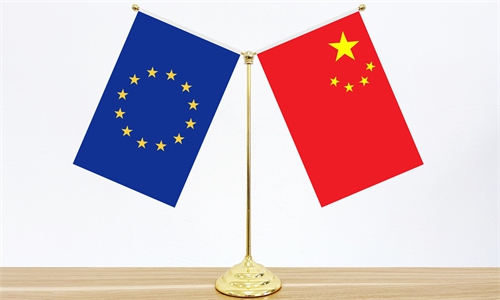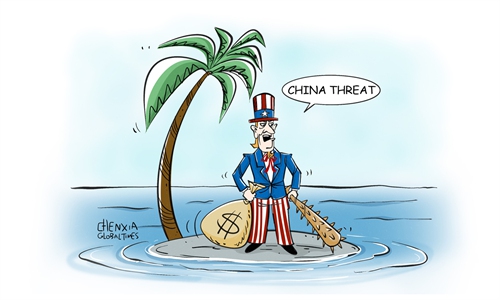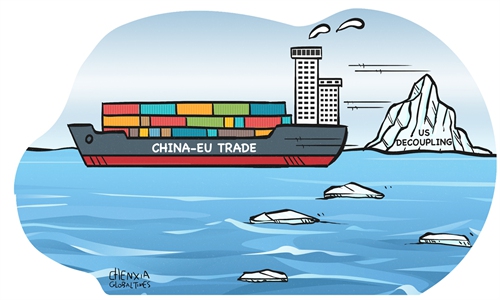

Loaders arrange cargo for the China-Europe freight train service inside a logistics depot at Ganzhou, East China's Jiangxi Province on January 18, 2024. Photo: VCG
China, the second-largest economy, and the EU, the largest trading bloc, have formed a strong foundation for economic and trade cooperation thanks to the intrinsic complementarity of the two economies.The practical and mutually beneficial cooperation between China and Europe can help both leverage their economic strengths and fully unleash their economic growth potential, which will generate positive momentum for the global economy.
China and Europe have great complementarity in a wide range of industrial categories. Due to China's strong production capacity and lower labor cost, it exports a significant amount of essential and intermediate goods to Europe each year, with bilateral trade between China and the EU hitting $783 billion in 2023.
China and Europe are becoming more intertwined in nurturing important industrial chains, especially in sectors including automobile manufacturing and new-energy production. The synergy between the two economies is evident in these fields.
The complementarity could also be seen in traditional industries, with each economy having unique advantages. China is increasing imports of European agricultural products due to rising Chinese demand, resulting from increased spending power across the country.
Many China-Europe joint ventures are manufacturing products that not only cater to the demands of Chinese and European markets, but they are also exported to third-party markets. This synergy is evident throughout their shared industrial chains.
To further enhance economic and trade cooperation between China and Europe, it is essential to focus on practical cooperation. Politicizing economic issues disrupts economic and trade cooperation, while imposing trade restrictions will hurt normal production activities.
Cooperation between China and Europe should start from the needs of both sides and take into account the construction of the entire industrial chain. The integration of the industrial chains of China and Europe is conducive to sustained development of both economies.
China and Europe also need to actively promote third-party cooperation, which will further complement the advantages of both sides, and integrate their respective strengths to explore a broader market.
Cooperation in the traditional fields needs to be continuously upgraded to adapt to the changing technological landscape and market demands. Opportunities between China and France in the fields of nuclear energy and aviation are good examples of this. In areas that meet the development needs of both economies, such as green technology, the alignment of policies between the two sides should be better coordinated and implemented.
Increased cooperation between China and Europe has the potential to enhance economic and trade prospects for both. This collaboration could encompass various sectors such as artificial intelligence, biotechnology, digital economy, big data, quantum computing and other fields.
The combined share of China and Europe in the world economy comes in at more than 40 percent. If both sides can avoid the trap of politicizing economic issues and continue to cooperate and open up in a mutually beneficial way, it will have a positive impact on maintaining the current trend of globalization.
China and Europe, in terms of industrial cooperation and free trade, can deepen their cooperation to provide a good example for the world. Currently, certain countries are putting their own interests before others, by taking protectionist approaches in global trade.
Whether it is anti-globalization or protectionism, it should not be allowed to develop into a trend, because once it becomes a trend, it will force different economies to take similar approaches. Therefore, for China and Europe, it is necessary to uphold free trade and open economy, because only by sticking to this direction can the two sides better respond to the impact of anti-globalization and protectionism.
And, through enhancing third party cooperation between China and Europe, the two sides can help improve economies and market conditions outside of China and Europe. This collaboration can help in better achieving the United Nations' sustainable development goals, such as poverty alleviation and creating new jobs.
The author is director of Center for the European Union and Regional Development Studies, Beijing Foreign Studies University. bizopinion@globaltimes.com.cn



